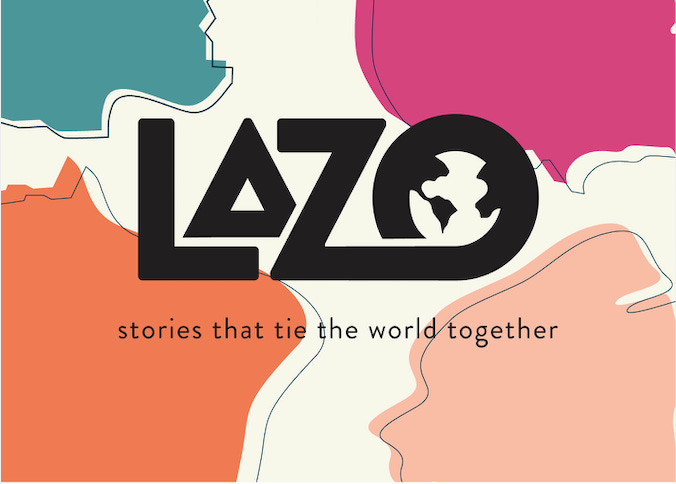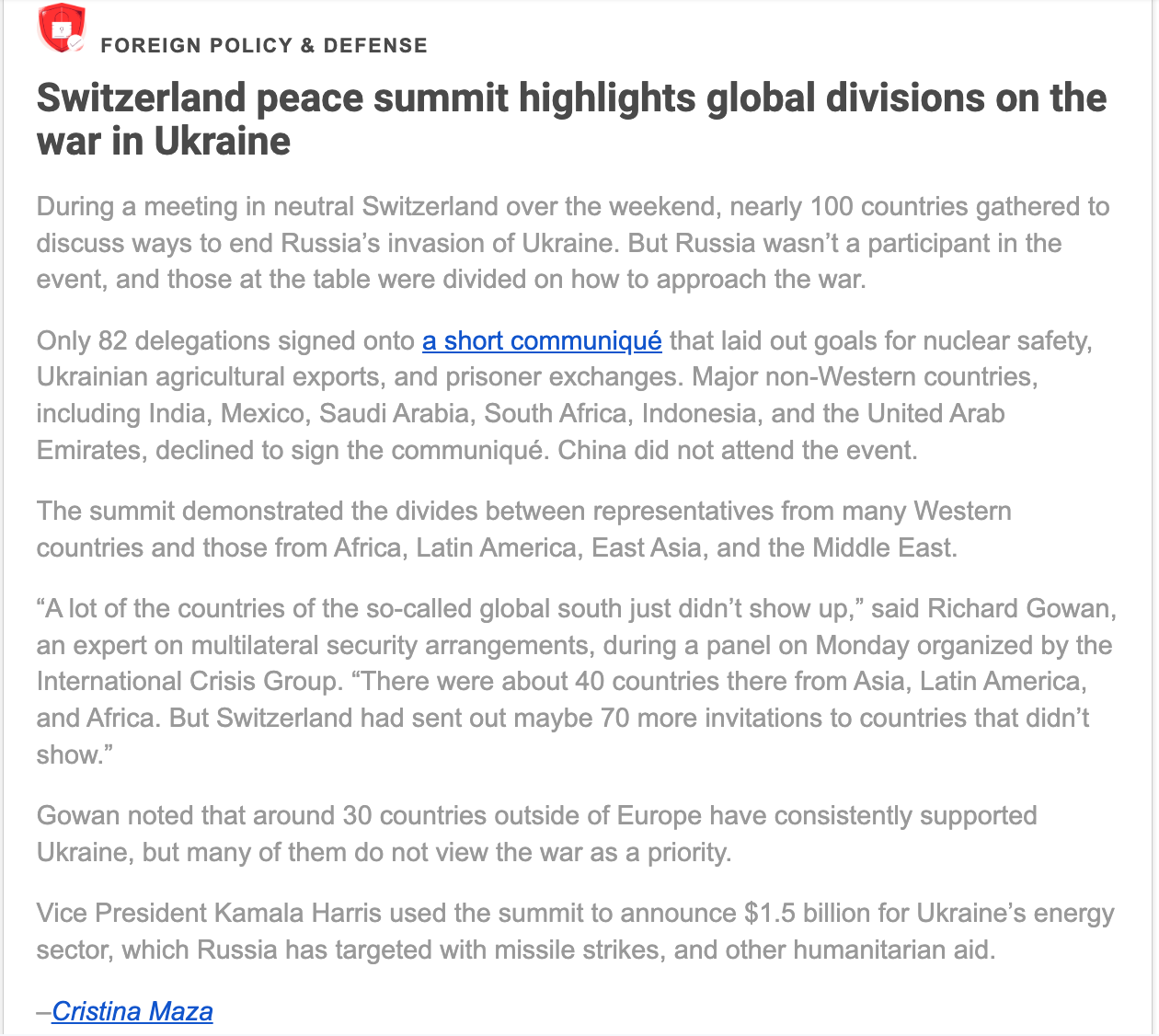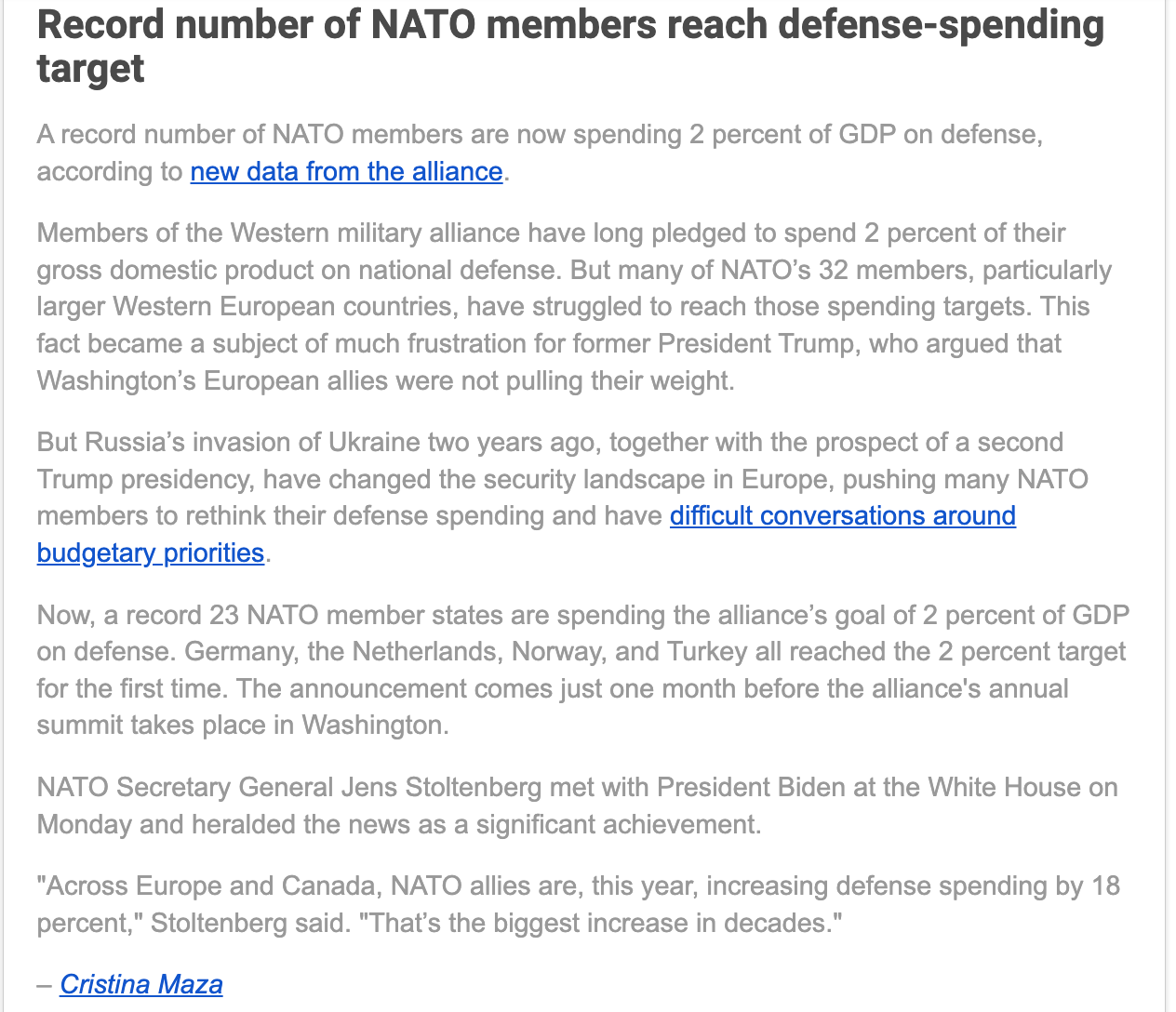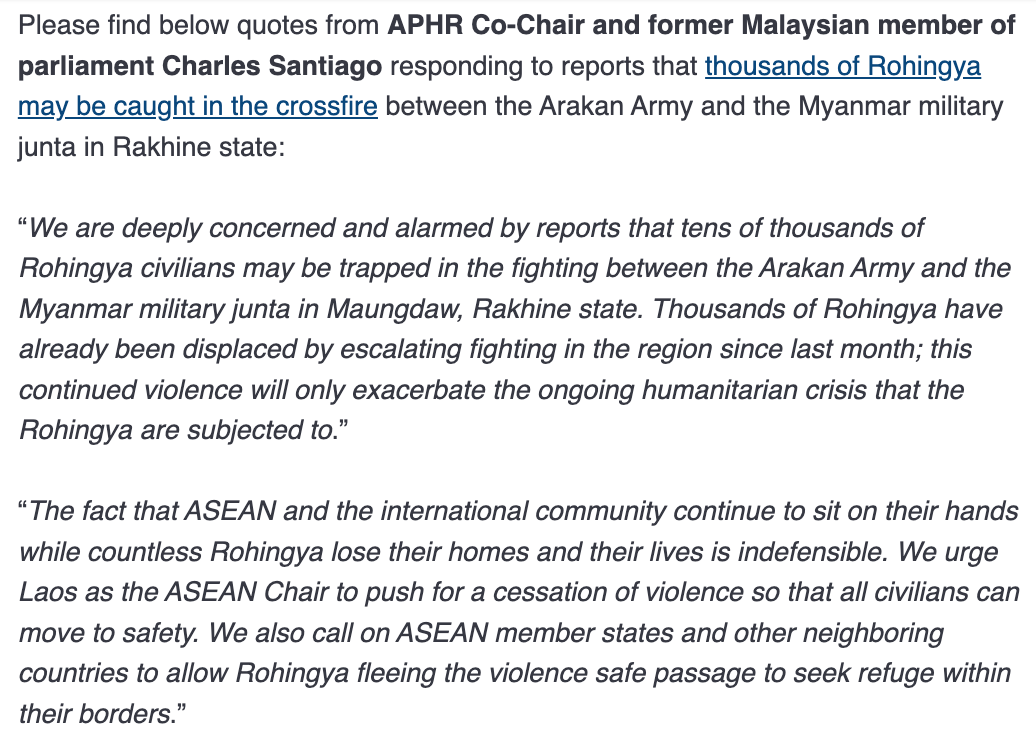OK, now that I’m back in the DMV and can properly digest everything I did and learned in Austria, this will be the last Vienna-heavy edition for a while. It has everything you could possibly need.
In the What I’m Writing section below, you can find stories on Austrian foreign policy and how the country tries to maintain its role as a neutral host of international diplomatic initiatives even as Russia tries to infiltrate it.
Then, I wrote a guide for Lazo Magazine on what to do in Vienna if you’re not into all the typical touristy stuff. That includes advice on where to party, shop, look at art, and why you should check out the municipal trash incinerator. You can read Lazo Magazine’s Guide to Vienna here.
Lazo Magazine is now on social media. You can follow along on Facebook, Twitter, LinkedIn, and Instagram. And if you can donate to Lazo Magazine or become a paid subscriber to this newsletter, that’s always appreciated.
What I’m writing:
• From Vienna, I reported on how Austria is trying to navigate its longstanding military neutrality in the face of Russian aggression in Europe and Moscow's attempts to infiltrate Austrian power structures. This story is unlocked and free to read.
• Also from Vienna, I wrote about how Austria is pushing for the expansion of the European Union eastward. Austria’s Foreign Minister believes that requiring all aspiring EU members to make the same reforms is equivalent to stalling the enlargement process indefinitely and abandoning them. He’s pushing for a different model. This story is unlocked and free to read.
My weekly news blurbs:
What I’m reading:
• The DIAL has a deep dive, co-published with Foreign Policy, into the Austrian tradition of hosting winter balls. “More than 400 formal balls are held in Vienna each winter carnival season,” they write. “The tradition combines the public festivities of the medieval carnival with the legacy of the ‘Waltzing Congress’ of 1814, better known as the Congress of Vienna.”
• Russia accused France of triggering instability in the Caucasus after Paris agreed to sell its Caesar artillery weapons to Armenia amid growing tensions with Azerbaijan, Politico Europe reports.
• A new agreement reached by Russia and North Korea requires both countries to use all available means to provide immediate military assistance in the event of war, the Associated Press reports. South Korea condemned the agreement and said it would reconsider its policy of limiting its support to Ukraine to non-lethal supplies.
• The Guardian has a report on Ukraine’s Vietnamese population and how they continue to fight in the war.
• Rising Hungarian opposition figure Péter Magyar said he doesn't support sending weapons to Ukraine moments after bringing his delegation of seven MEPs into the European People's Party group in the European Parliament, Politico Europe reports.
• Hungary lifted its veto on the outgoing Dutch Prime Minister Mark Rutte becoming the next NATO Secretary-General after Rutte provided written guarantees that he would not force Budapest to participate in the military alliance’s new plans to support Ukraine. The Associated Press has the story.
• Bulgarian President Rumen Radev walked out of a planned meeting with Montenegro’s Prime Minister Milojko Spajić — because the PM was four minutes late, Politico Europe reports.
• The BBC documented nine incidents in which witnesses said Greek authorities deliberately threw migrants into the water. In all, a BBC analysis found at least 40 cases of migrants dying after being pushed out into international waters — or forced back onto boats after reaching Greek islands.
• Montenegro’s Europhile Prime Minister Milojko Spajić says his country is “low-hanging fruit” for an EU eager to show enlargement isn’t just an empty slogan, Politico Europe reports.
• Some 250,000 people protested in France to denounce the rise of Marine Le Pen’s far-right political party, National Rally, the Washington Post reports.
• Outgoing Dutch Prime Minister Mark Rutte will succeed Jens Stoltenberg as the next NATO Secretary-General, Politico Europe reports.
• Israel’s use of heavy bombs raises “serious concerns” under the laws of war, the United Nations human rights office said in a new report.
• The Israeli government said it is looking to “strengthen” Jewish settlements in the occupied West Bank after several countries recognized a Palestinian state.
• The U.S. State Department imposed sanctions on a right-wing Israeli group, Tzav 9, involved in disrupting Gaza aid deliveries, the Wall Street Journal reports.
• Israeli officials held a secret meeting in Qatar to try to bridge the gap between the U.S.-backed ceasefire deal and Hamas’s requested amendments, the Saudi-owned Elaph news outlet reported. The Times of Israel has the write-up.
• Chinese authorities in Xinjiang have been systematically changing the names of hundreds of Uyghur villages as part of a broader government effort to erase Uyghur culture, Human Rights Watch said.
• The New Lines Institute has a new report on genocide in Ethiopia’s Tigray region.
Interesting statements:
You can write to me for any reason: c.maza@protonmail.com









